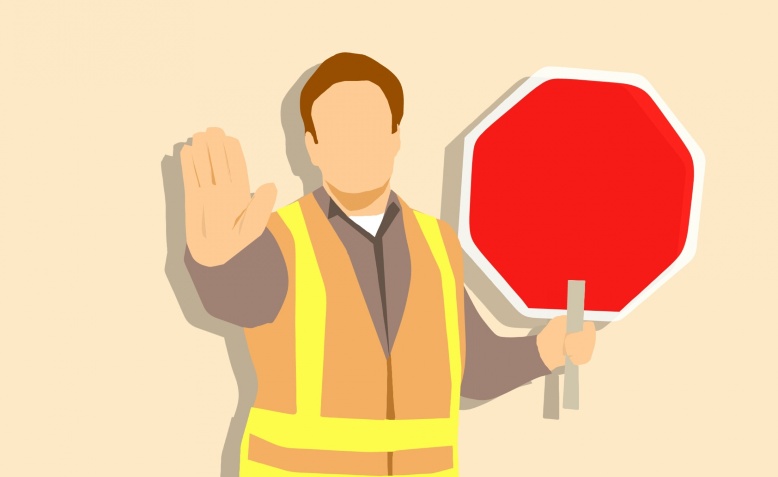 Photo: Public Domain
Photo: Public Domain
If you’re being made to go back to work and don’t feel safe, know your rights and join a trade union, writes Tony Dowling
Apart from his usual habit of huffing and puffing with blustering interjections of ‘errs’ and ‘ums’, the main message from Johnson’s much-touted Sunday statement appeared to be the one we had already become aware of even before his broadcast: changing the slogan ‘stay home, protect the NHS’ to ‘stay alert, control the virus.’
At least the previous messaging was clear about what the public should actually do. And Johnson himself said his new plan was “conditional” on satisfying five tests. Yet he is implementing his plan before the conditions have been met!
It is little surprise, therefore, that so many people are not only confused, but also angry and concerned about what they are being asked to do. And the main worry is about work. From being told “only go to work if you must” the message now is that unless able to work from home workers “should be actively encouraged to go to work” – which shows little concern for the lives of workers.
So what should workers do? Can they refuse to work?
There is some very good advice published in an article by Shelley Asquith at the TUC. Some of the key points are:
- Workers have a right to be safe at work, wherever they work and whatever they do. Coronavirus does not change this
- There are existing laws which already protect workers: It’s a legal requirement, under the Health and Safety at Work Regulations Act 1974, for bosses to carry out a workplace risk assessment
- Employers must enable extremely vulnerable workers in the shielded category to observe NHS advice, and protect other vulnerable or pregnant workers
- Employees have the right to leave work under Section 44 of the Employment Act 1996 if there is “serious or imminent danger”
- It is important that you seek advice and support on taking action: raise concerns with your union and employer first
- The law also protects you from being victimised if, after raising concerns and seeking advice, the danger persists and you decide to leave work
The first thing you need to do is to join a union. As outlined above, it is illegal for your employer to force you to work in unsafe conditions, but it is important to have union support and advice to make sure you can exercise your rights correctly and that you don’t act alone to hold unscrupulous employers to account.
It is collective action that gives workers strength to make demands on employers. In fact, many thousands of workers have already joined unions during this crisis to do just that. And with some success.
The NEU (National Education Union) in particular successfully campaigned to get school closures for children of non-essential workers, and has set out some key demands for any re-opening of schools. But transport, postal, library, waste and health workers’ unions have also been able to win concessions too.
So if you are not in a union, join one now! And if you are in a union, acquaint yourself with your rights as set out in the TUC article above, get involved in your union and encourage your colleagues, friends and family to join.
Most importantly, organise collectively!
Counterfire is hosting a public meeting this Saturday 16 May with speakers from Aslef, Unison and the NEU, details and registration here.
Before you go
Counterfire is growing faster than ever before
We need to raise £20,000 as we are having to expand operations. We are moving to a bigger, better central office, upping our print run and distribution, buying a new printer, new computers and employing more staff.

